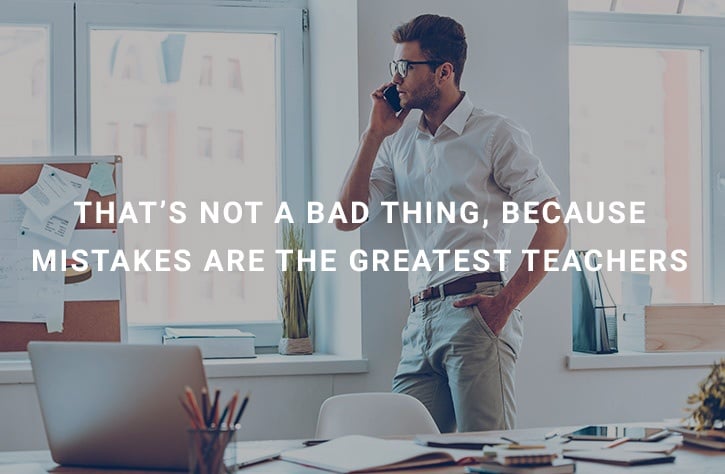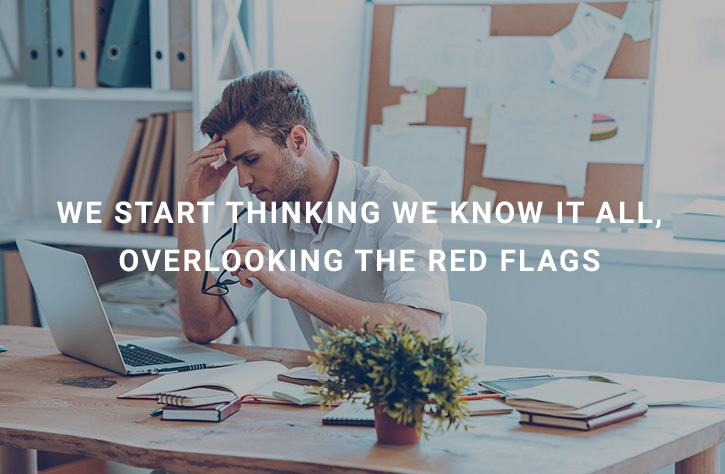
As far as the advice goes, “always look on the bright side” scores pretty well. It’s not a bad song lyric, either. But is there such a thing as too much positivity, especially when it comes to making business decisions?
A good answer to this question probably cuts both ways. On the one hand, positivity and cheerfulness are associated with happiness, stronger relationships, and welcome leadership skills. On the other side of the coin, though...
View all of the posts in our Cognitive Biases in marketing series.
It pays to be aware of the fact that most of us underestimate the odds that something unfavourable will happen to us personally. We just assume those are things that happen to other people, at least most of the time.
This tendency to overestimate our own good luck cuts across culture, gender, and even generations. Psychologists call it optimism bias, and almost all of us are susceptible to it to one degree or another.
I have no problem admitting that I fall into this category. As someone who has survived stage IV cancer, you’d think I’d be alert to dangers everywhere. That doesn’t stop me from feeling like I’m fairly immune to other happenings, though. I don’t spend a lot of time worrying about unknowns that I know affect countless others; I’m aware for sure, but I don't dwell on them.
You could argue that a certain amount of ignorance is useful to all of us so we can enjoy our lives and get on with our work without having to stop and think about every thing that could happen. As marketers, however, we need to know that our optimism bias brings with it a risk of overlooking real hazards.
Let’s look at a few things we can all do to overcome optimism bias in our day-to-day working lives…
As I’ve said, it’s a great thing to look on the bright side and see the best in any situation. If that’s your natural perspective, then I encourage you to stay with it. If it’s not, see what you can do to bring a bit more positivity into your life. I know firsthand how fragile life is, and how important it is to find joy in your day.
With that being said, let’s think about the decisions we make in terms of potential downsides. If you invest in a new office or marketing plan, what will happen if timing, economic forces, or customers don’t cooperate? Is there a plan B?
There’s a good chance the worst will never happen, but you should be aware that it might. Sometimes the bottom really does fall out. That’s not a bad thing, because mistakes are the greatest teachers, but they also shouldn’t come at you in a wholly unexpected way.

Suppose my cancer had left me with the supernatural ability to detect it in others (perhaps the way dogs do). In such a scenario, I could warn friends and acquaintances who were about to become seriously ill. They, in turn, could make financial and medical preparations that would be invaluable in the months and years to come.
Unfortunately, I don’t have that power. What I do have is the knowledge that people get sick, industries and best practices change, and economies slide into (and out of) recession.
I would advise you to take the opposite approach. Think about the bad things that could happen in your life, and then plan for them. Once you’ve got the safeguards in place, you can rest easier and be all the more thankful for the calamities you don’t have to deal with. That kind of informed positivity is a lot more valuable than blind hope and faith.
For years, it seemed like more than half of the work my marketing firm took on came from new clients who had been scammed by someone else previously. That is, the owners had fallen for sales pitches they knew in their hearts were probably too good to be true, but weren’t able to pass up what looked like an unbelievable opportunity.
This is another clear-cut example of optimism bias at work. The sense that we aren’t as unlucky as other people – along with the fact that we tend to overestimate our own abilities and decision-making powers – can make us easy prey for those who sell snake oil. That’s especially true for entrepreneurs who have been successful in their endeavours. We start thinking we know it all, and subsequently miss the red flags that jump up.

The same applies to marketing shortcuts and gimmicks. It’s amazing how many people I run into who are surprised they’ve been caught doing something unethical by Google or Facebook. Optimism bias tells them they can get away with something that others can’t right up until the moment they have been proven wrong.
A positive outlook is a great thing, and an optimistic personality will take you far in the world of business. Just don’t let the faith you have in your own luck cloud your judgment so you can’t see the realities on the horizon.
Learn how we apply behavioural insights into lead conversion optimization using HubSpot Software.